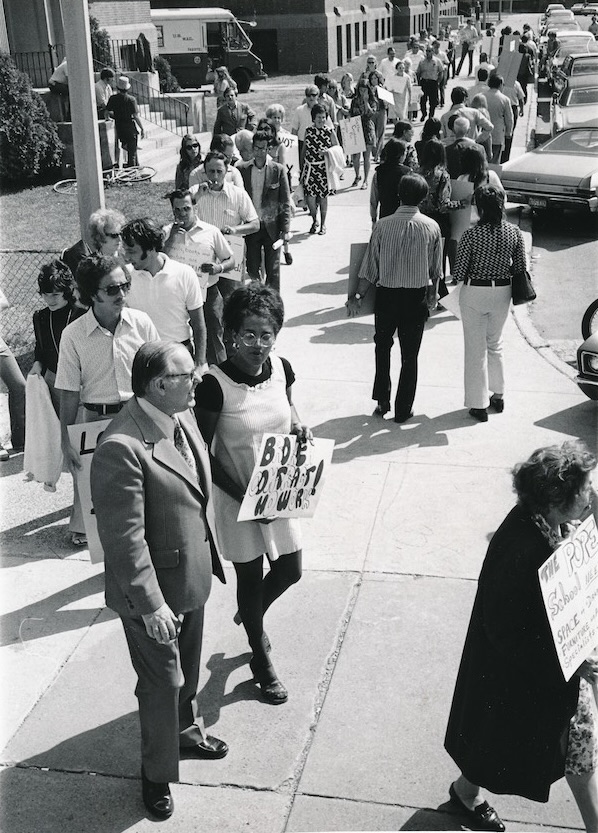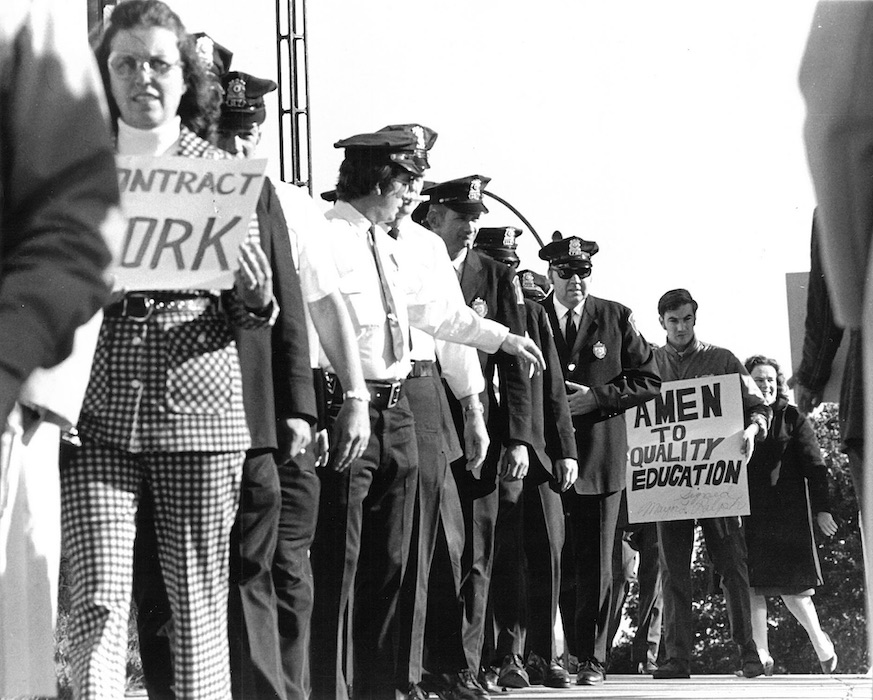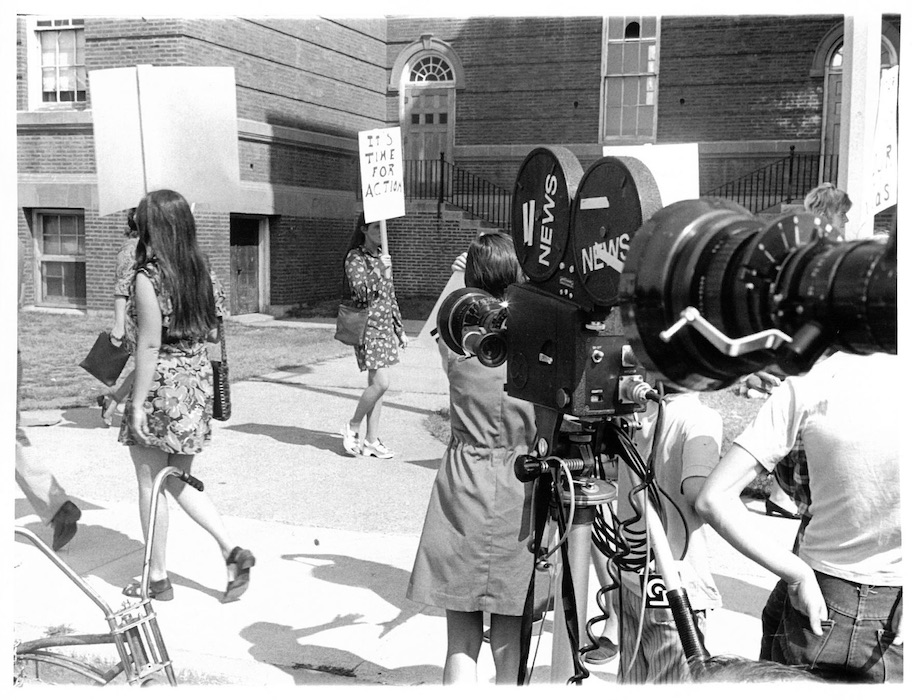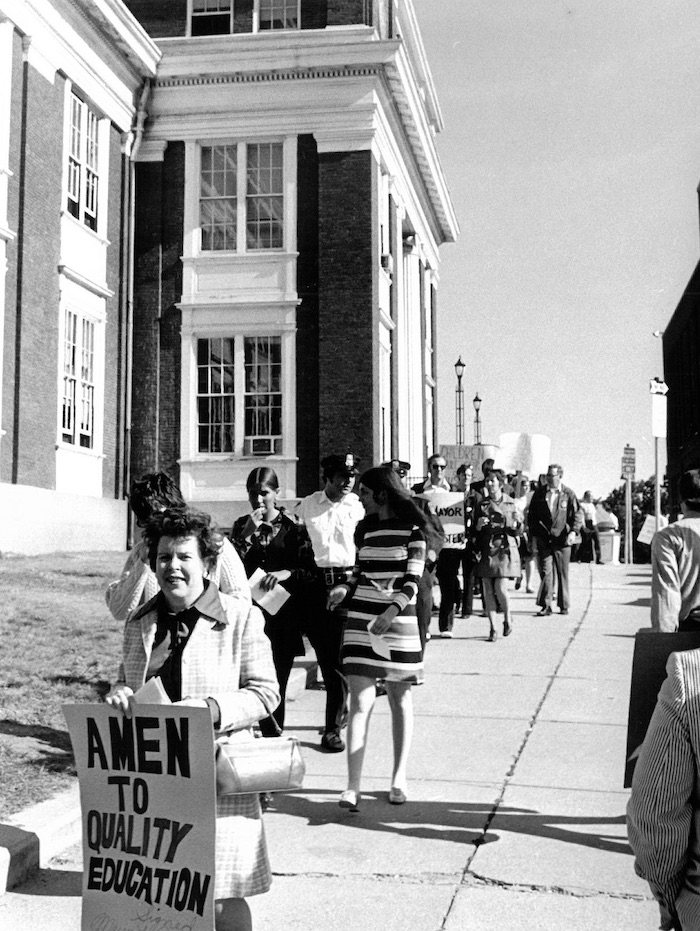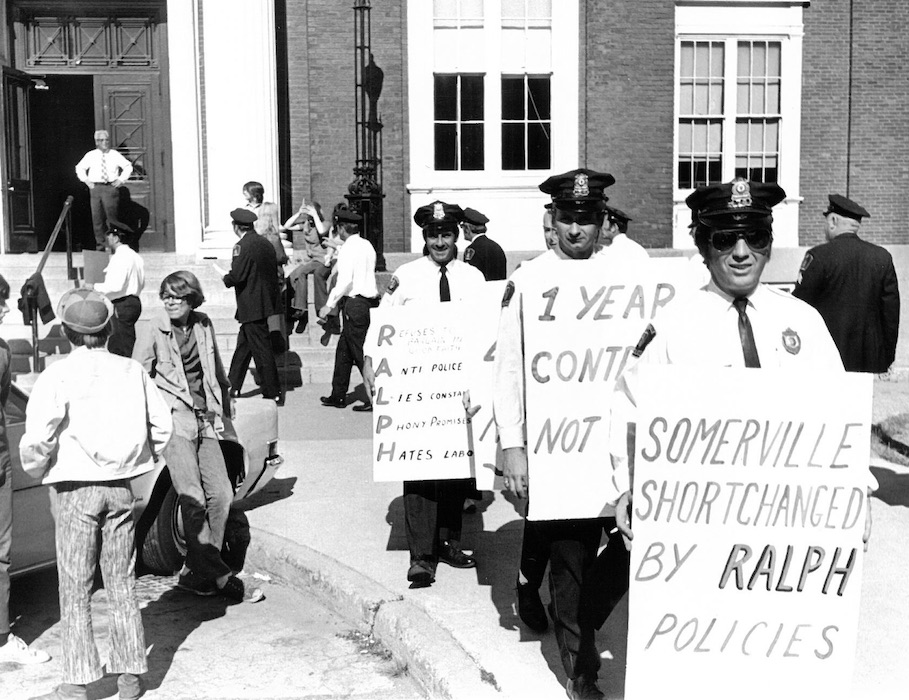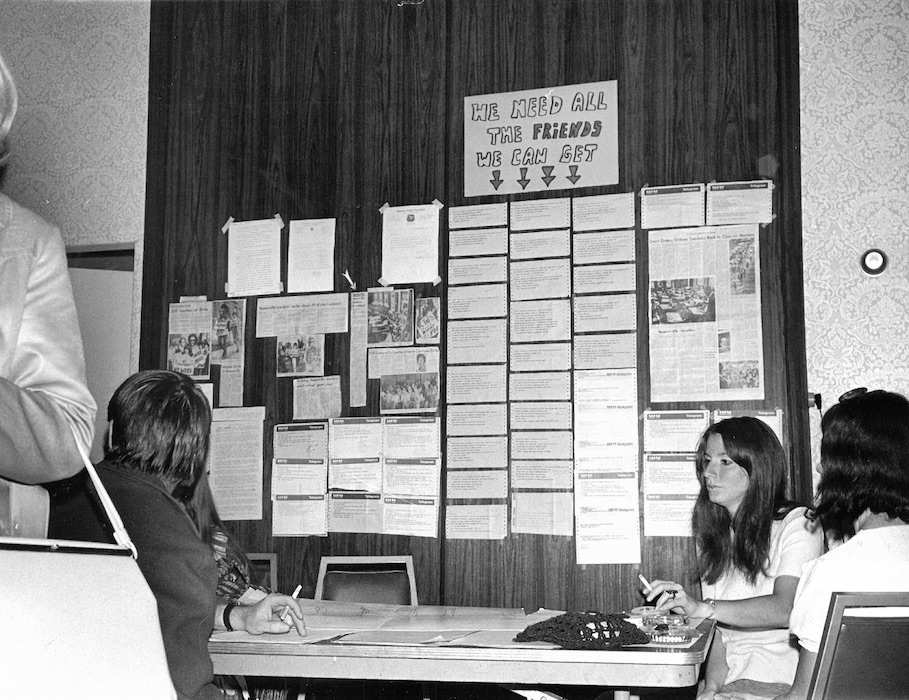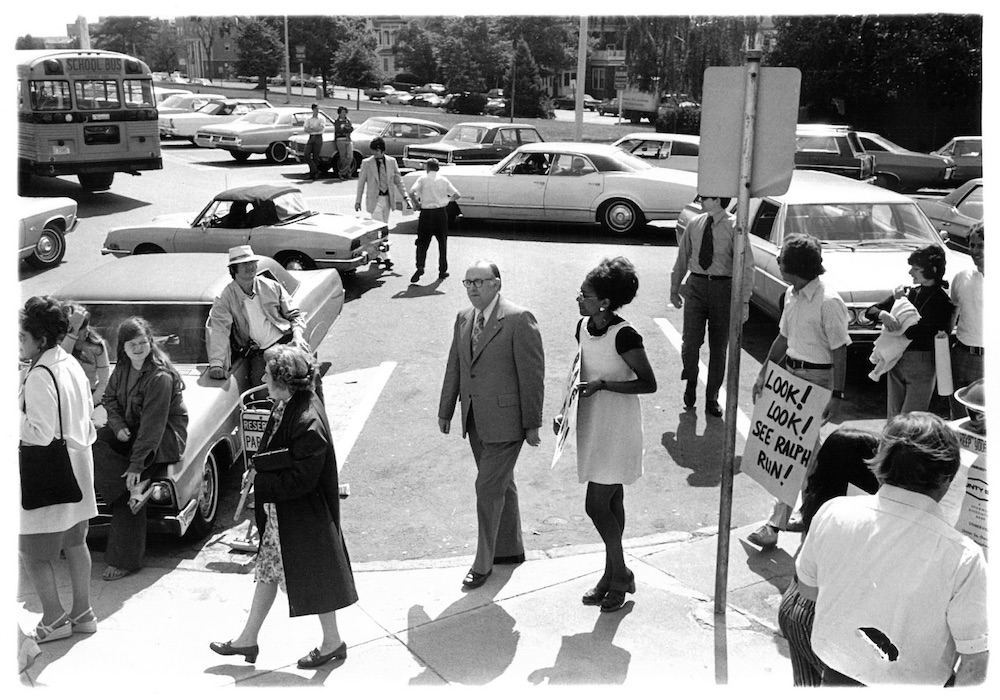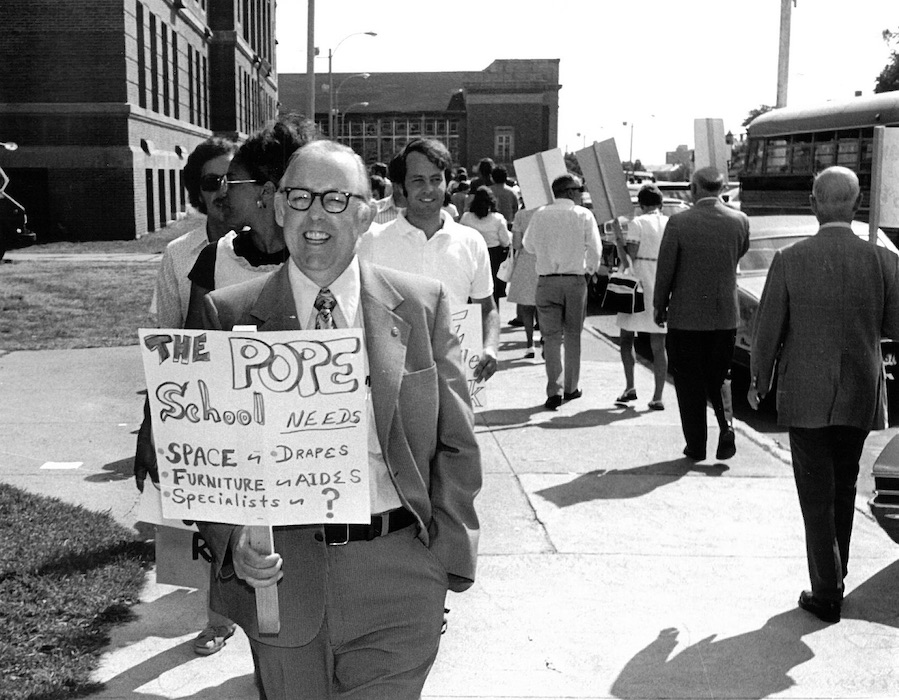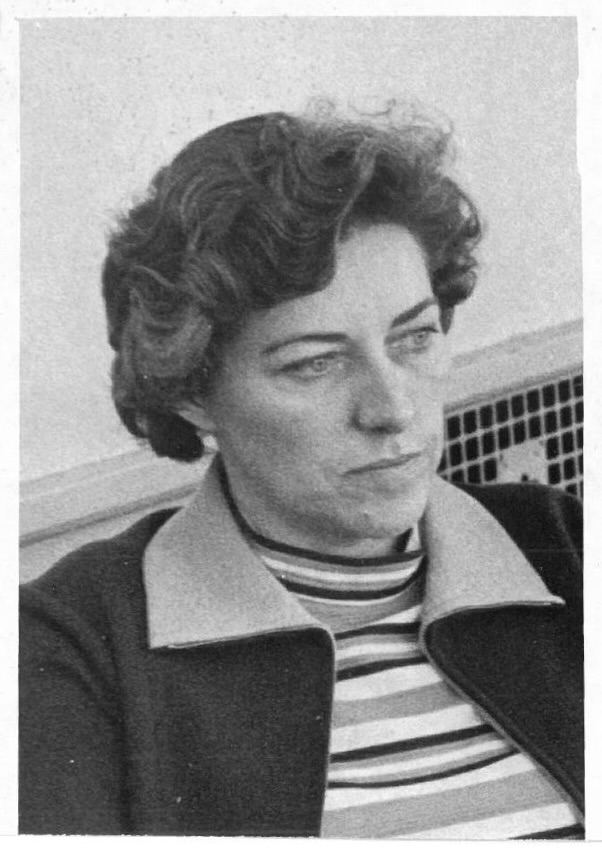Somerville
Bargaining over working conditions at heart of Somerville’s 1972 strike
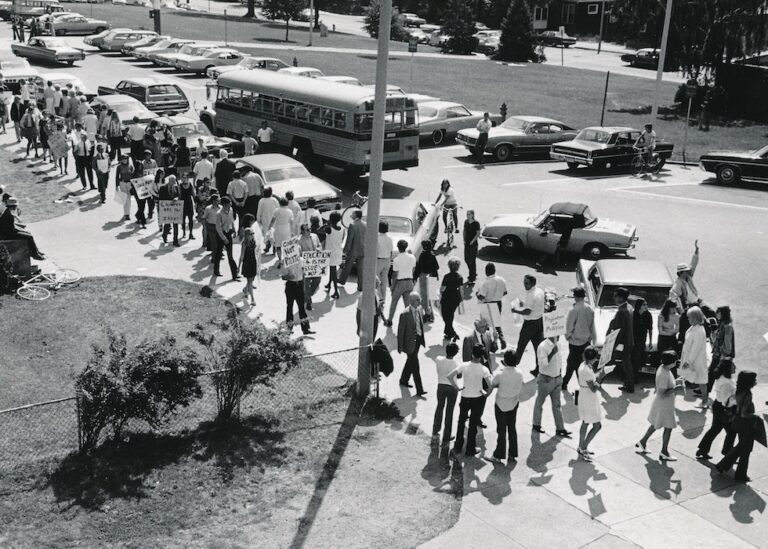
STA President Jane McGrath said the teachers had the choice of ratifying the contract or boarding buses parked outside ready for a trip to court.
The passage of the collective bargaining law in 1965 greatly changed the nature and size of the MTA and the level of activism in MTA’s locals. The MTA hired many new field staff and opened five regional offices to assist locals in bargaining contracts, organizing new units, and supporting members in times of crisis when contracts couldn’t be settled through ordinary means.
In the fall of 1972, The Massachusetts Teacher reported, “The first two weeks of September were tumultuous for teachers in some Massachusetts communities. They didn’t have new contracts.” In Somerville, the article went on to say, “teachers had to resort to a strike to get a contract from the iron-fisted committee. This was a big decision for the teachers because strikes are illegal.”
This strike lasted six school days. The major issue was whether teachers have a right to bargain collectively for conditions that affect their employment. Prior to striking, Somerville teachers had worn badges with black guillotines to symbolize how the School Committee had cut educational issues out of the bargaining process.
Other unions showed their support. Two dozen Somerville police officers in uniform joined 200 teachers picketing in front of the high school.
The contract that was finally ratified did give teachers more of a voice, including appointing three teachers to a committee that studied and made recommendations on several education issues, such as a controversial seven-period day at the high school and the need for specialists in elementary schools.
Teachers conducted a door-to-door canvass of Somerville homes and received widespread backing from parents. Telegrams came to strike headquarters — a rented ballroom — from teachers associations all across the state, and from several Somerville politicians.
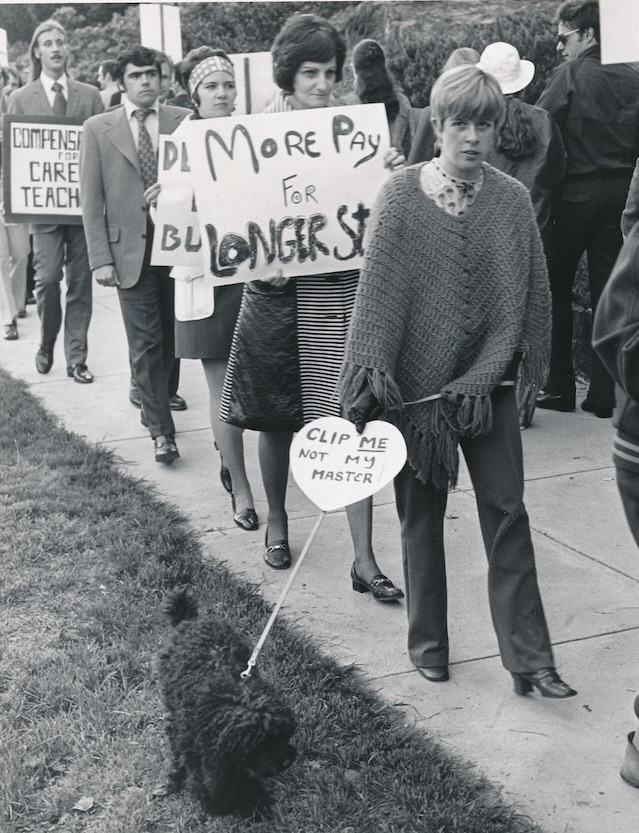
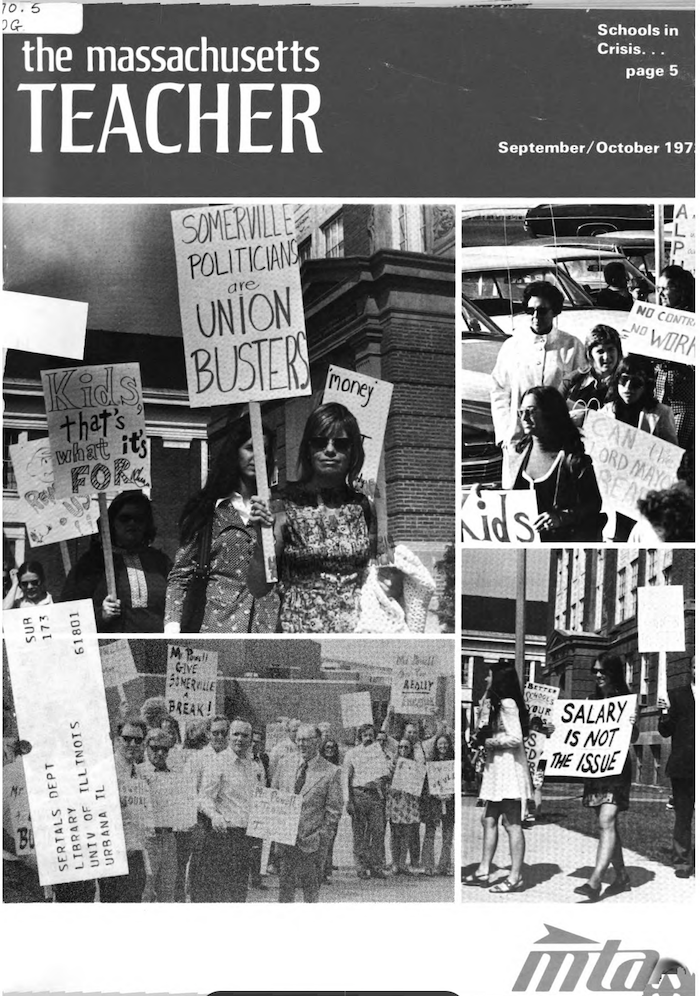
Additional Photos
